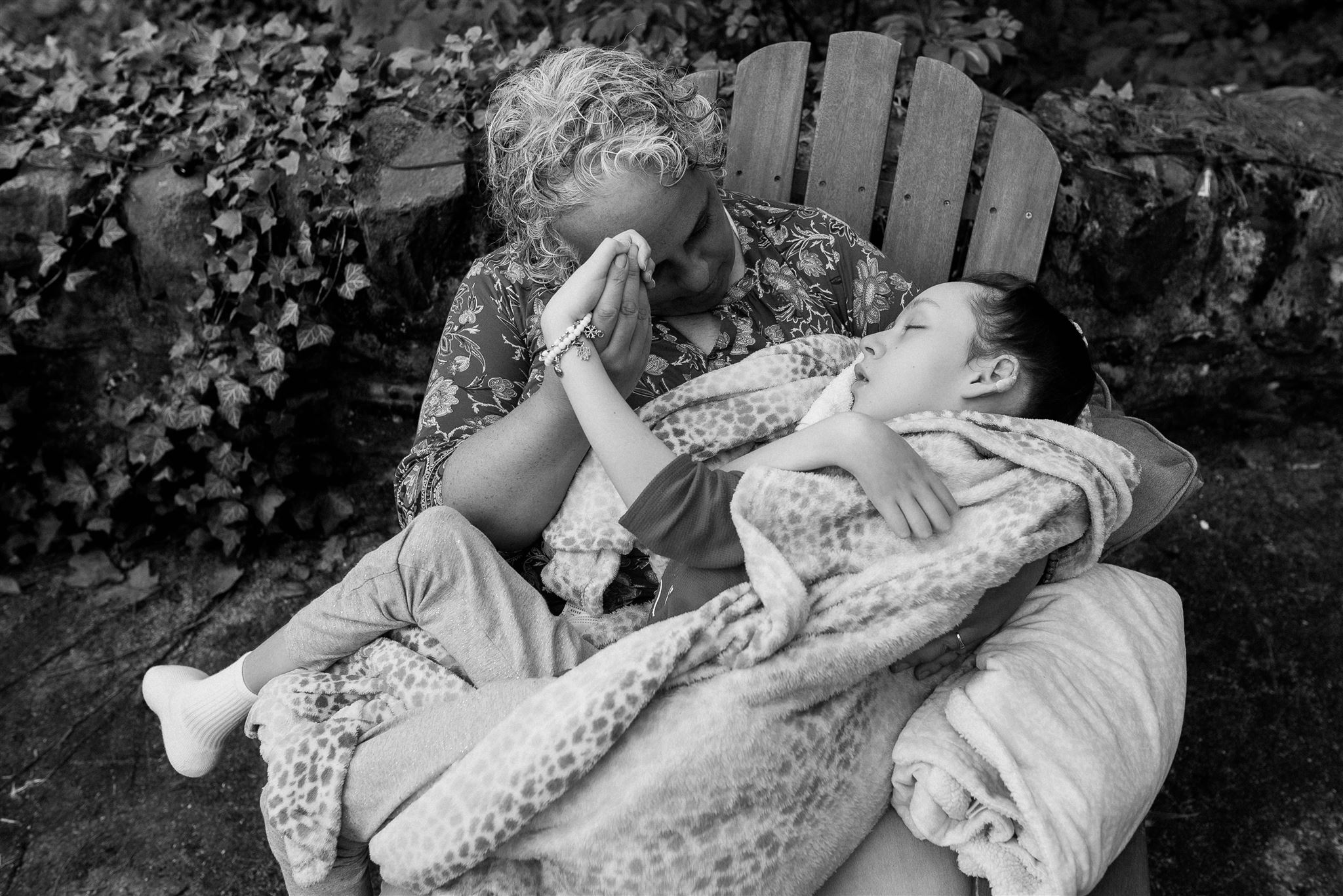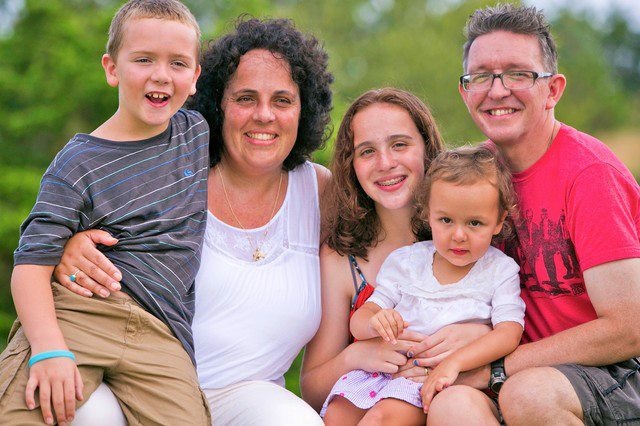
Maria Kefalas is no stranger to grief.
In 2012, her youngest daughter Calliope, who goes by the nickname “Cal,” was diagnosed with a fatal degenerative neurologic disease called metachromatic leukodystrophy (MLD). Cal, a toddler at the time, was not expected to live beyond the age of six.
“She is defying the odds and we have learned to live with this diagnosis now for nine years,” Kefalas told the Child Neurology Foundation in a recent interview.
MLD, a rare genetic disorder in the same family as Tay-Sachs and Canavan diseases, affects the brain and nervous system. Within months, Cal lost the ability to walk, talk and feed herself. She started having seizures.
Listen to Maria Kefalas describe her daughter Cal’s diagnostic journey:
That same year of Cal’s diagnosis, Kefalas’ husband was diagnosed with blood cancer. He passed away in 2020.
Despite all that her family has faced, Kefalas is also no stranger to miracles.
“People who lead safe, comfortable lives – as much as I wish I could have been one of them – often don’t get to experience remarkable things,” she said.
Heartbreak And Hope
Kefalas, MA, PhD, is the author of numerous books and articles and a professor at Saint Joseph’s University in Philadelphia. She recently published a memoir about her experiences and the remarkable journey her family has been on, called Harnessing Grief: One Mother’s Quest for Meaning and Miracles. Her book tells a story of heartbreak, hope and using hardship as a force to do good for others.
“Once the worst thing had happened – once I was broken into a million pieces – I realized that there was nothing left for me to be scared of,” she said.
“I became convinced that I could do anything because I wasn’t afraid of failure.”

When Cal was diagnosed, there was no cure and few options. A year later, there was a break-through in the first generation of gene therapies for neurodegenerative disorders.
Suddenly, there was hope.
“It’s like having a front row seat to the biggest medical breakthrough in a generation. People will win Nobel prizes for this work,” Kefalas said.
Listen to Maria Kefalas share what it’s like being on the forefront of this medical breakthrough:
‘The Best Kept Secret In Medicine’
Cal won’t benefit from this breakthrough though. The therapy can only prevent damage, it cannot reverse the disease.
But for children who are diagnosed with MLD before symptom onset, through newborn screening or detected in an older sibling with the genetic disease, the future can look very different. If it’s caught early enough, gene therapy can prevent MLD.
“Gene therapy for neurodegenerative disorders is the best kept secret in medicine – if this was oncology, it would have been on the front pages of every newspaper in the world,” Kefalas said.
“This moment for pediatric neurology is akin to the oncology world in the 1980s. This is an absolutely pivotal moment; we will look back and see the field completely reimagined.”
From Parent To Global Advocate
Although her daughter can’t be saved, that hasn’t stopped Kefalas. When she speaks about gene therapy, her excitement is palpable. Her belief is powerful.
“I’ve really come to believe that advocacy shouldn’t be motivated by the idea that you are going to help your child,” she says. “Big picture, long-term advocacy requires an understanding that your child won’t necessarily benefit from the work that you do.”
A year into the family’s journey with MLD, Cal’s at-the-time-nine-year-old brother suggested selling cupcakes to help raise money for children like Cal. What started as a small community bake sale has morphed into global patient advocacy for gene therapy.
The family has sold 50,000 cupcakes so far and helped send children with the genetic predisposition to develop MLD to Milan for the gene therapy clinical trial.
Their fundraising helped established the nation’s first Leukodystrophy Center of Excellence, located at the Children’s Hospital of Philadelphia where Cal was first diagnosed. The family also founded two non-profits: the Calliope Joy Foundation and Cure MLD.
Kefalas, now a nationally recognized parent advocate for gene therapy, has spoken at the National Institutes of Health (NIH), National Organization For Rare Disorders (NORD), and the U.S. Food And Drug Administration (FDA).
Maria Kefalas reflects on her family’s journey. Listen to her insights and thoughts here:
She sees multiple areas where advocacy for gene therapy is needed: to improve access, to increase awareness and to change the diagnostic journey.
“Medical miracles are literally waiting around the corner as long as we start to hook up diagnostics to the new therapies – this 21st century medical breakthrough can’t work without 21st century diagnostics,” she says.
When it comes to her own ground-breaking advocacy work, Kefalas is modest.
“I’m always trapped by the paradox of the fact that I hated that this happened and yet I don’t want to be the person that I used to be,” she said.
“If you have the courage to be present in the lives of children like my daughter, children who are facing a death sentence, they will teach you the meaning of life.”
